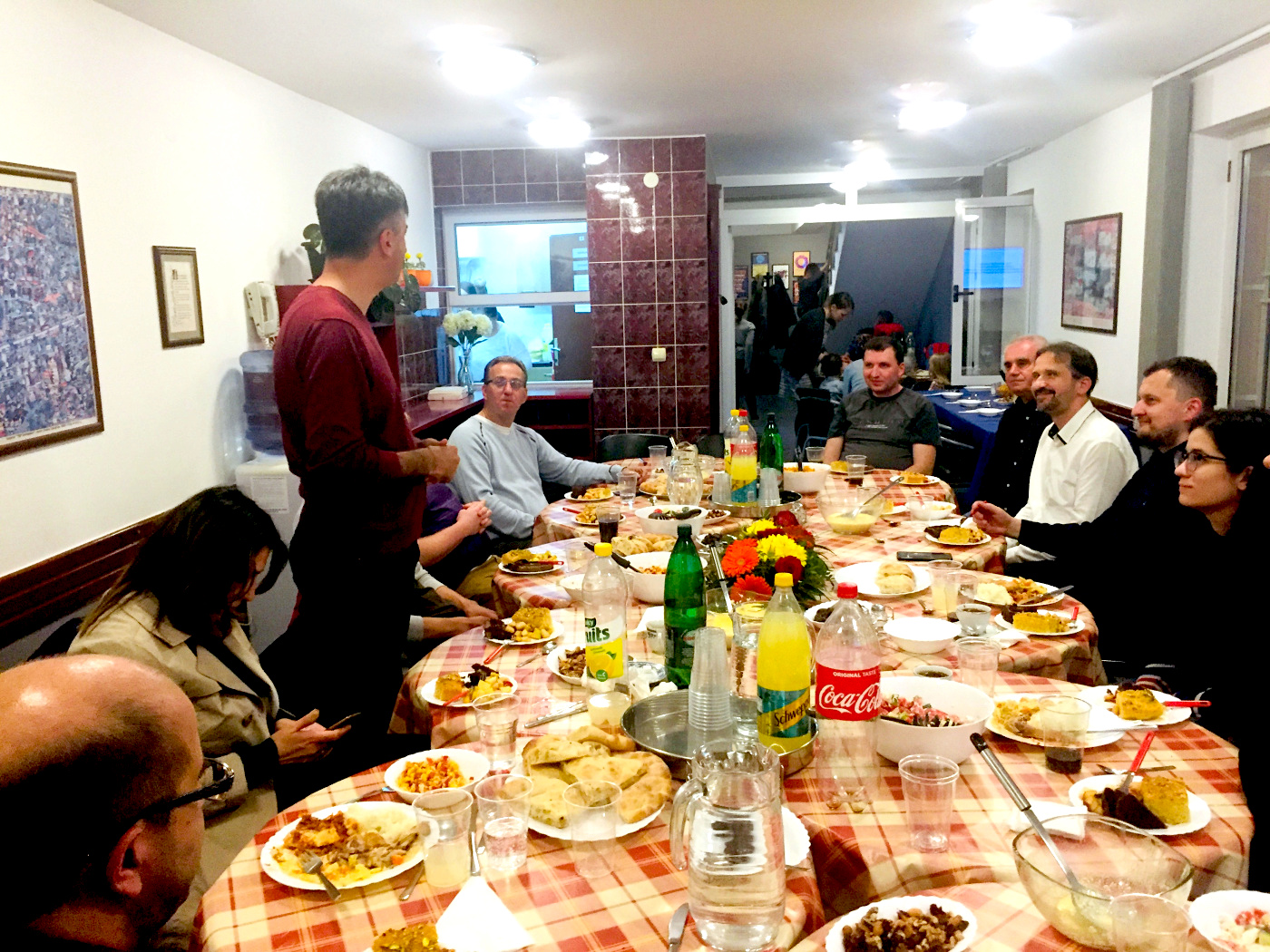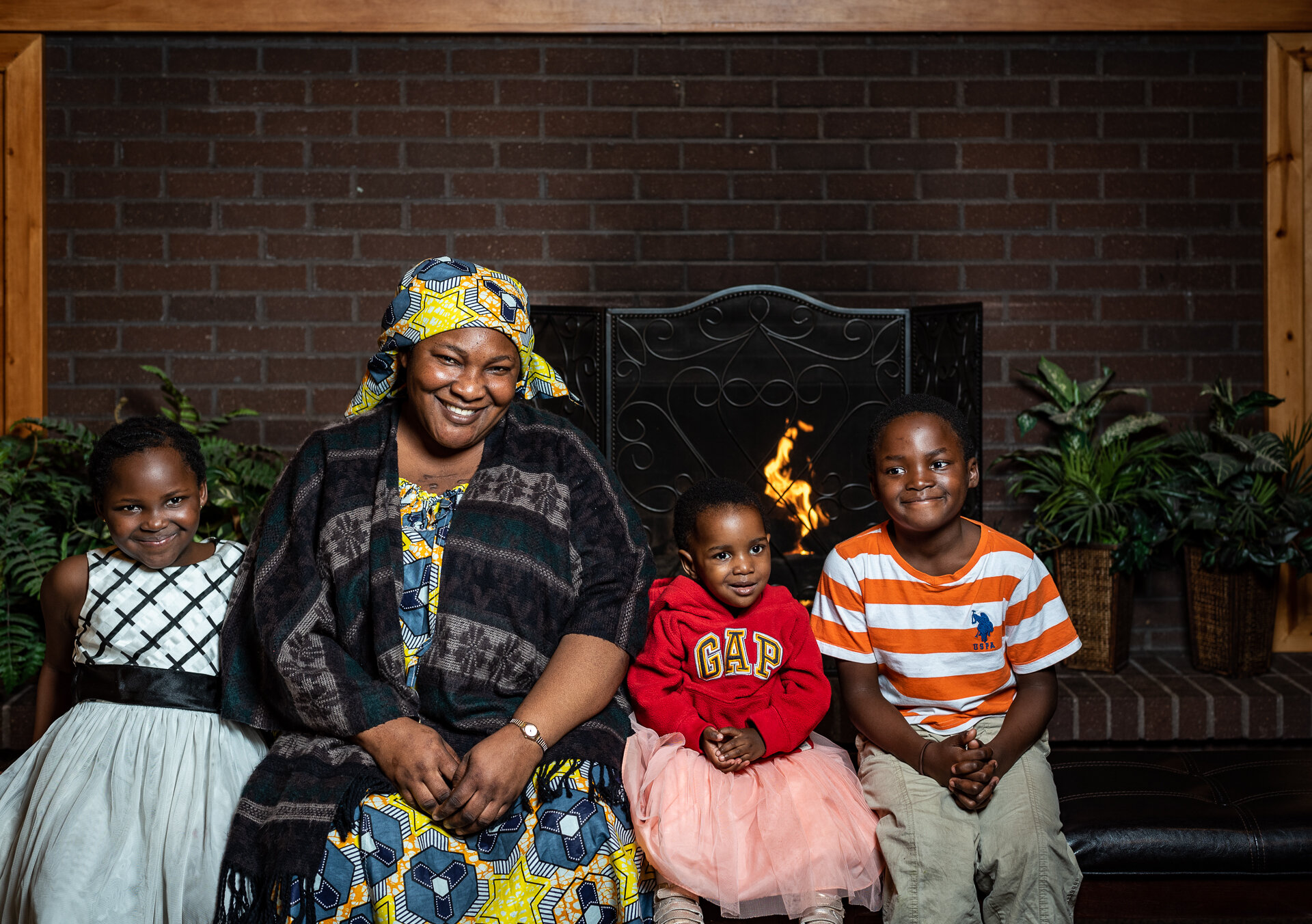Bosnians Recover a Tradition of Inter-Religious Hospitality
by Bryan Carey
We helped host a Ramadan Iftar dinner at our local church last week.
That might sound weird. But actually, coming alongside Christians as they host or attend Iftars with their Muslim neighbors during Ramadan is nothing new to Peace Catalyst. Hosting an Iftar is one of the events we most look forward to throughout the year, and our families all get a little off-schedule for about a month as our houses or local restaurants are packed out with guests coming to meet us for dinner at 8pm (or later).
The reason we host events like Iftar at PCI is that we believe that by giving people of different faith traditions an opportunity to meet one another, especially over something so normal and innocent as lemonade and a plate of lasagne, we can create a space in which walls of hostility or misunderstanding can be broken down and, in their place, something new and beautiful can start to grow. The things we have come to expect from these types of encounters are that Christians and Muslims see into one another’s worlds, they catch a glimpse of something disarmingly funny, attractive, or simply normal in a person they had once thought was scary or distant, and they want to press into that new relationship.
We definitely saw this at our last Iftar. After a couple hours’ worth of conversation, we saw people check their Google calendars to see when they could meet up on Tuesday for coffee; we heard things like, “Oh, you have to talk to the woman sitting at the end of the table, she’s just hilarious!” and “Wow, that was really kind of them to do this;” “That was really cool watching them pray,” and “So this is really a church? It looks and feels so inviting. I honestly didn’t expect that.”
It was so great to see and hear these comments and see warm and light interactions, especially among our friends. But at the same time, as PCI staff, we had hoped for and expected something like this to happen. What was quite unexpected and unique about this night was the fact that this particular Iftar was held in Bosnia… by Christians… in their church… 24 years after the Bosnian War ended.
Before the Bosnian War in the early 90’s, Bosnia and Herzegovina enjoyed a long-held tradition of Christians hosting Muslims for Iftar during Ramadan, and Muslims hosting Christians during Lent and around Christmas or Easter. Before the war, it was very normal for neighbors to celebrate one another’s religious holidays with them through hospitality in one another’s homes, especially in Sarajevo where there was such diversity and even intermarriage between people of different faiths. Things like this happened all the time.
But that was before the war. Things have changed since then. Now, in 2019, when our pastor suggested not only inviting members of the congregation to show up to an Iftar somewhere, but to actively host one on our own turf – well, that was a little unusual. One of our Muslim colleagues told us how strange it was for his wife to write “Crkva” (“Church”) on her family’s Iftar calendar that week. In the kitchen a few hours before the meal began, there was a bit more nervous energy over how and when beverages should be served and which serving dishes should be used for the dates. In both communities, people wondered aloud, “Uh…Are we allowed to do this?”
But when the meal began, the nervous energy dissipated into comments like, “Do you remember how we used to do this kind of thing all the time?” and “This was so much fun – we really need to do this again sometime soon.” In a small way, the tradition of hospitality across religious barriers that was lost because of the war was resurrected this past week over lasagne. It’s our hope and prayer that this night was just the first of many throughout the year that will help build bridges across the many divides in Bosnian society and to create spaces in which people can find hope and recover the distinctly Bosnian culture of hospitality between religions once again.
Join us this Fall in Bosnia & Herzegovina for a 10-day Christian-Muslim peacemaking experience.











